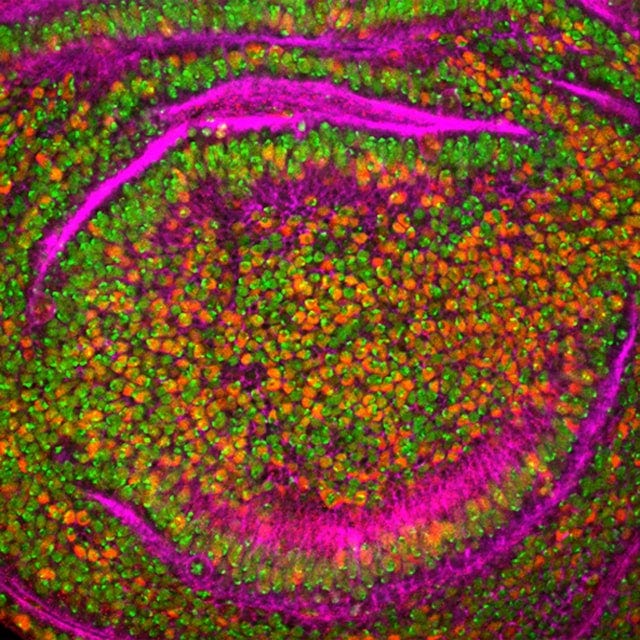# Exploring Engineered Plants and Innovative Biotechnology
Written on
Chapter 1: Introduction to Engineered Plants
In my early days, I created a small lab in my attic to experiment with various scientific concepts. I fondly recall one particular experiment where I added concentrated sulfuric acid to blood from a nosebleed, successfully precipitating hemotin from hemoglobin. It was a memorable experience.
— Dorothy Hodgkin
Understanding Engineered Plants
The European Union implemented regulations on genetically modified foods in 2018, yet creating effective tests to identify plants that violate these guidelines remains a significant challenge. [Labiotech.eu](#).
The Aroma of Science
Some of the world’s most cherished scents, like grapefruit, are at risk due to climate change. To combat this, synthetic biology may provide innovative solutions for creating desired fragrances in the future. [C&EN](#).
Proteins that Adapt
"Fold-switching" proteins exhibit the ability to bend and twist into different shapes, allowing them to perform various cellular functions. This characteristic presents a new challenge for x-ray crystallographers. [Quanta Magazine](#).
Bioprinting Breakthroughs
Recent advancements in 3D bioprinting have allowed researchers to create bone-like structures at room temperature using living cells and specific molecules. This study was published in Advanced Functional Materials. [Advanced Science News](#).
A New Hope for Infertility
A bioengineered uterus could potentially assist women suffering from uterine factor infertility, a condition affecting approximately 1 in 500 women of reproductive age. [Future Human](#).
Innovating Wood Alternatives
Swamp ash, a key material for iconic Fender Stratocasters, is dwindling in availability. Synthetic biologists are exploring methods to cultivate wood substitutes in laboratory settings without the need for soil or sunlight, potentially preserving these guitars for future generations. [Future Human](#).
DNA Against COVID-19
The French company DNA Script aims to make DNA synthesis accessible, enabling researchers to print their own sequences directly in the lab. [Labiotech.eu](#).
On-Demand Vaccine Production
At Northwestern University, the Jewett lab has developed a cell-free system that can produce vaccines against bacteria in under an hour for approximately $5 per dose. [Northwestern University](#).
Simplifying Protein Creation
A new tool from the Leonard lab makes it easier to create 'split' proteins designed to unite in the presence of specific small molecules. This development could enhance biosensor design and protein-based logic gates. [Northwestern University](#).
Funding for Synthetic Biology
NfX, a venture firm, has recently established a fund dedicated to biotechnology startups, named NfX Bio. [Forbes](#).
Cancer Research Innovations
Research on the MYC protein has shown that specific mutations can lead to tumor reduction in mice, a significant finding for cancer treatment studies. [Fierce Biotech](#).
Award-Winning Biotechnology
The Voigt lab at MIT, in collaboration with SynLogic, received a $1 million award from the Air Force Research Laboratory for their contributions to biotechnology. [PR Newswire](#).
New IEEE Fellow Announcement
Domitilla Del Vecchio, a synthetic biologist at MIT, has been honored as an IEEE Fellow for 2021. [MIT News Release](#).

Chapter 2: Industry Updates and Innovations
The video "GMOs!" discusses the implications of genetically modified organisms in agriculture and health.
In the video "How to Make Genetically Engineered Plants," viewers can learn about the processes behind creating engineered plants.
Recent Developments in the Biotechnology Sector
23andMe, the genetic testing firm based in California, is set to go public through a $3.5 billion agreement led by the Virgin Group. [Fierce Biotech](#).
Amyris, known for its 'clean beauty' products made through fermentation, asserts that its acne treatment ingredients outperform ten standard treatments currently available in the U.S., according to a study by Princeton Consumer Research Corp. [PR Newswire](#).
Catamaran Bio, a Massachusetts-based company utilizing synthetic biology to create natural killer cells aimed at combating solid tumors, has appointed Dr. Alvin Shih as its new CEO. [Fierce Biotech](#).
Creo, located in California, is leveraging fermentation to produce cannabinoids and recently announced the capacity to manufacture significant quantities of cannabigerol and cannabigerolic acid in 12,500-liter reactors. [PR Newswire](#).
DNA Script is set to receive $1.6 million from the French Defence Innovation Agency for developing a tool to identify highly pathogenic viruses and bacteria. [BusinessWire](#).
Future Meat Technologies, an Israeli company focused on cellular agriculture, has successfully lowered the production cost of cultured chicken breasts to $7.50. [PR News Wire](#).
Geltor, known for producing specialty proteins, has expanded its leadership team with three new executives. [PR Newswire](#).
Germin8 Ventures, a venture capital firm investing in food and agriculture technology, has appointed Dr. Ashlie Burkart, a pathologist, as Chief Scientific Officer. [SynBioBeta](#).
Ginkgo Bioworks, based in Boston, was chosen by Massachusetts’ K-12 schools to conduct pooled Covid-19 testing. [PR Newswire](#).
Illumina, the sequencing leader in California, is launching a genomics startup incubator in China in collaboration with venture firm Sequoia Capital. [Fierce Biotech](#).
Pairwise, a biotechnology firm in Durham, N.C., has raised $90 million in a Series B funding round, utilizing CRISPR technology to enhance fruits and vegetables. [The Spoon](#).
Parse Biosciences, previously known as Split Bio, has secured $7 million in a Series A round to advance its single-cell sequencing technologies. [Crunchbase](#).
Sana Biotechnology, specializing in gene regulation, has achieved the largest IPO ever recorded for a preclinical biotech company. [Axios](#).
Twist Bioscience, a California DNA manufacturing firm, has expanded its leadership board. [BusinessWire](#).
Until Monday,
— Niko
Thank you for reading Cell Crunch, part of Bioeconomy.XYZ. If you found this newsletter interesting, please share it with friends or colleagues. You can reach me with tips and feedback at @NikoMcCarty or via email.